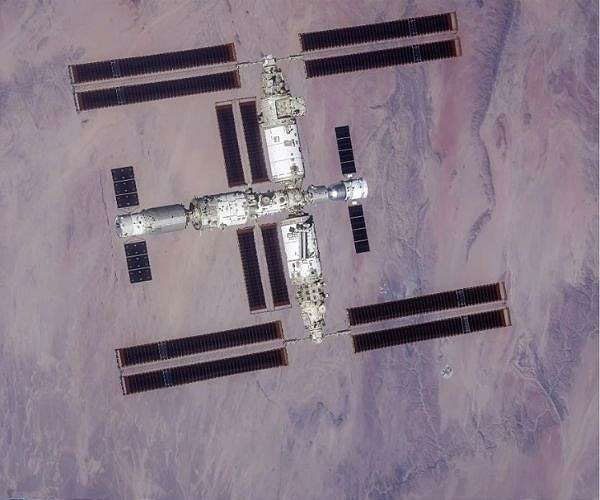China will send a new crew to the Tiangong space station, marking the latest mission in its program to send astronauts to the Moon by 2030, AFP reports citing a statement from the China National Space Administration during a press conference on April 24.
The crew consists of three members of the Shenzhou-18 spacecraft, who will replace the Shenzhou-17 team currently operating the Tiangong space station since October 2023.

Astronauts preparing for the Shenzhou-18 mission attend a press conference at the Jiuquan Satellite Launch Center on April 24. (Photo: AFP).
Shenzhou-18 is scheduled to launch at 20:59 (12:59 GMT) today [April 25] from the Jiuquan Satellite Launch Center in Northwest China.
During the press conference, the China National Space Administration introduced Commander Ye Guanfu, 43, a veteran astronaut who participated in the Shenzhou-13 mission in 2021. Commander Ye will be joined by two astronauts, Li Cong, 34, and Li Guansu, 36, who will fly into space for the first time.
Commander Ye described the launch as a “new beginning.” “Facing challenges, my two teammates and I are fully prepared. We are confident that we can accomplish this mission,” Commander Ye emphasized.
Astronaut Li Guansu stated: “I want to take a close look at the beautiful blue planet, its magnificent mountains and rivers, and revisit the places that nurtured me along the way. I also want to see if the stars in the sky truly twinkle through my beloved child’s eyes.”
The Shenzhou-18 crew will live aboard the Tiangong space station for six months, conducting experiments related to gravity and physics, as well as life sciences.
According to Xinhua, Lin Xiqiang, Deputy Director of the China National Space Administration, indicated that they will also implement a “global greenhouse gas detection project with high resolution.”
“All preparations are on schedule. They will work with other astronauts to carry out subsequent missions aboard the space station and realize the goal of landing on the Moon,” Mr. Lin said.

China’s Tiangong space station. (Photo: Space.com).
Tiangong, which means “palace in the sky,” is China’s self-built space station. Beijing conducted its first space mission in 2003, becoming the third country after the former Soviet Union and the United States to send humans into space with its own resources. Completed in 2022, the Tiangong space station is operated by rotating teams of up to three astronauts at an orbital altitude of up to 450 km. According to the China Academy of Space Technology, the operational lifespan of Tiangong could exceed 15 years. |
- Former Canadian Defense Minister reveals: Is there an unknown civilization hidden beneath the ice in Antarctica?
- Ingenuity helicopter on Mars sends final information back to Earth
- More than 1 trillion of these insects emerge from the ground, causing the biggest “disaster” in 221 years in the United States


















































